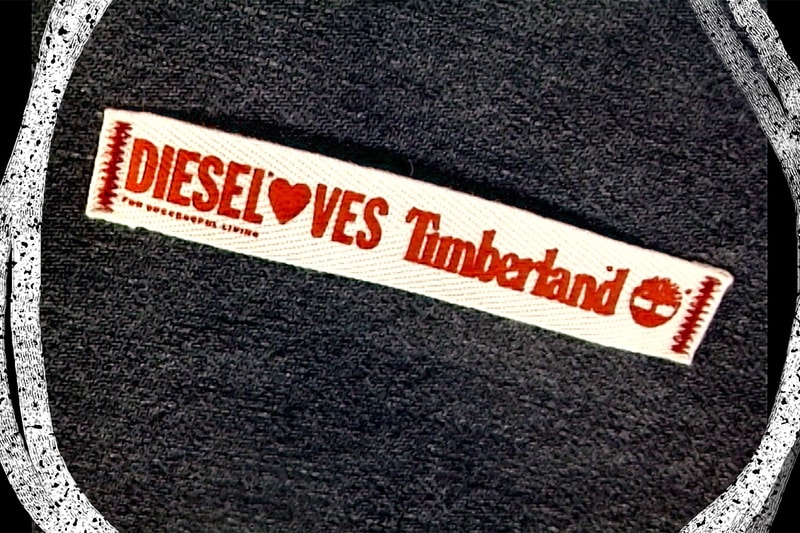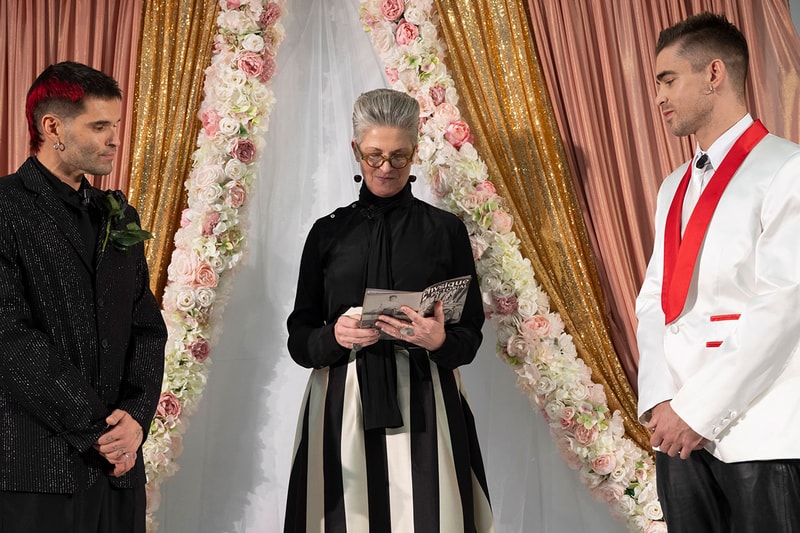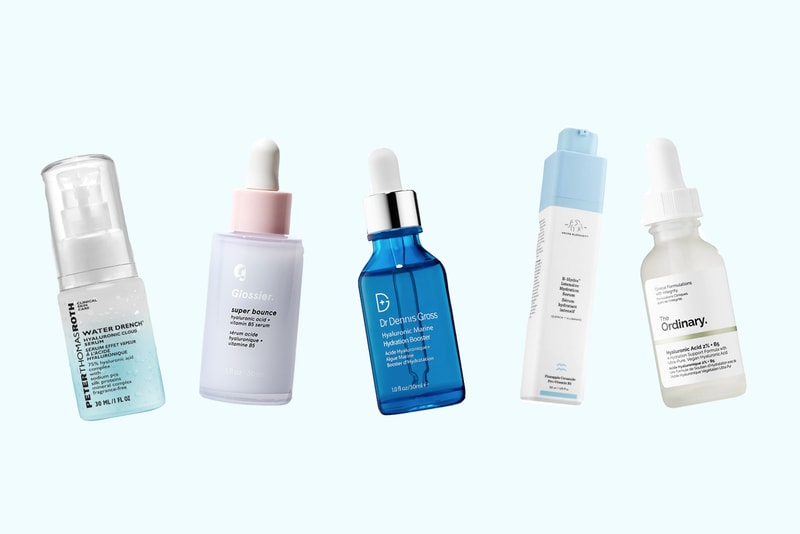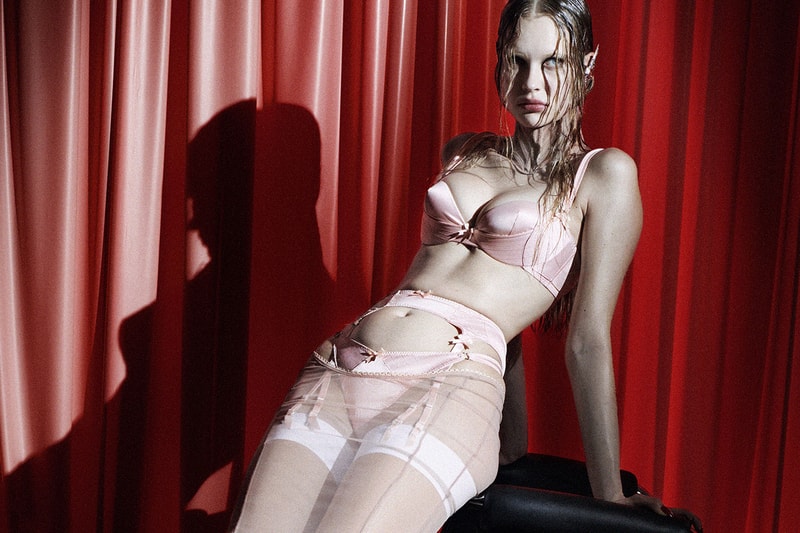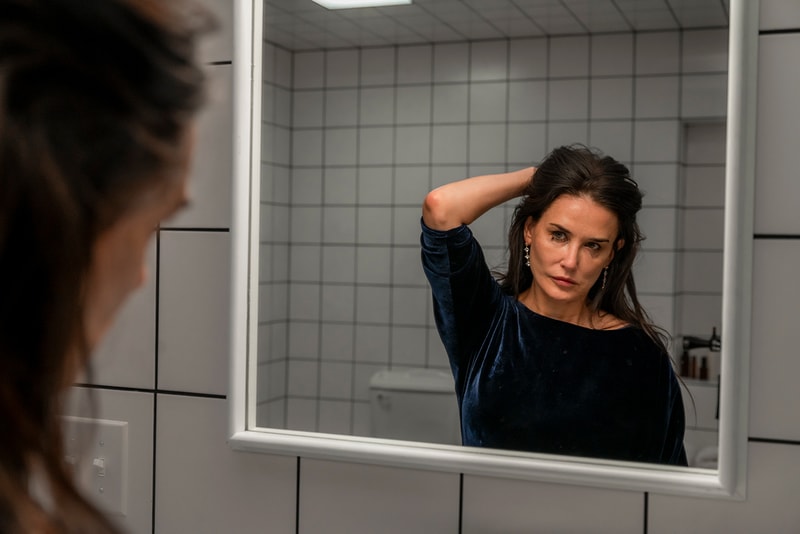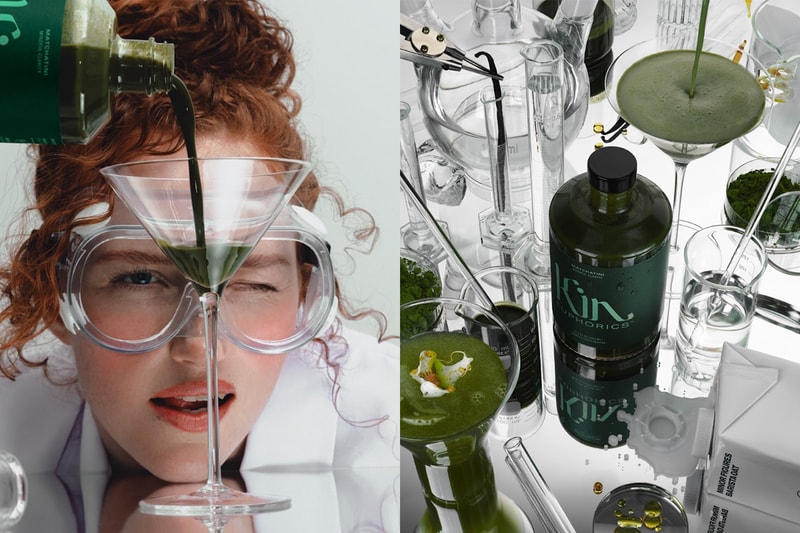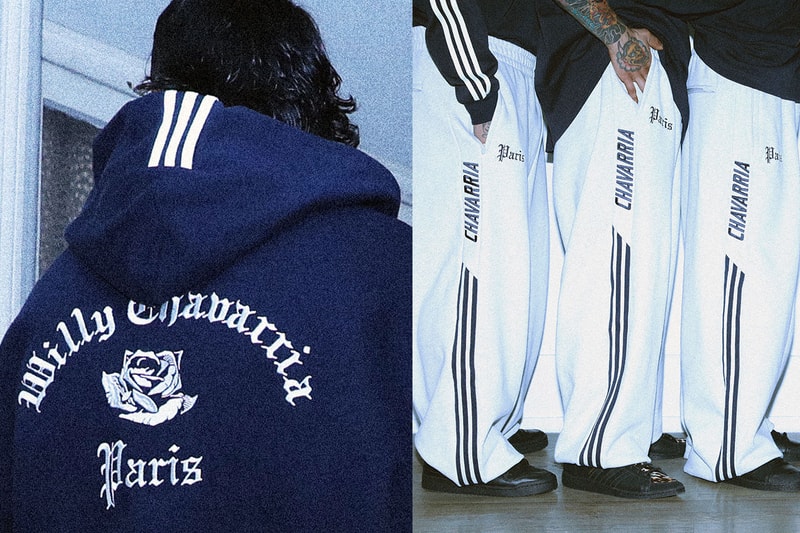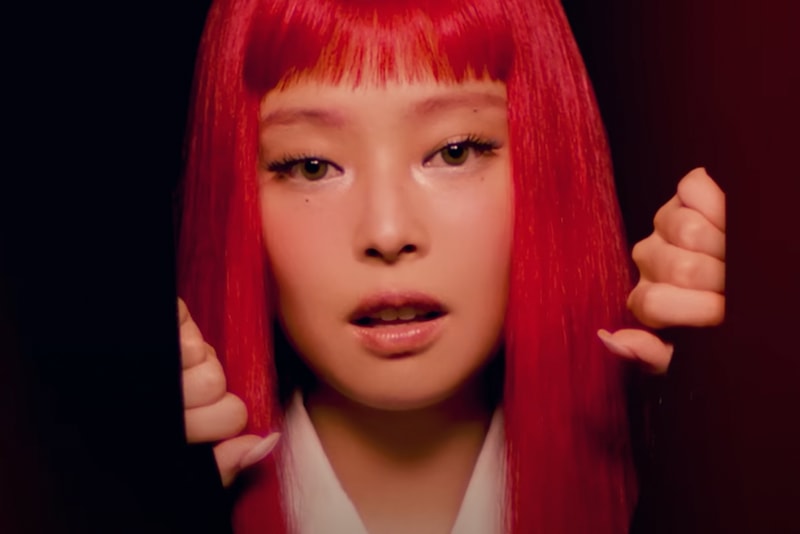AAPI Creatives Speak Up About Anti-Asian Racism
info@hypebae.com (HYPEBAE) Fri, 28 May 2021 HYPEBAE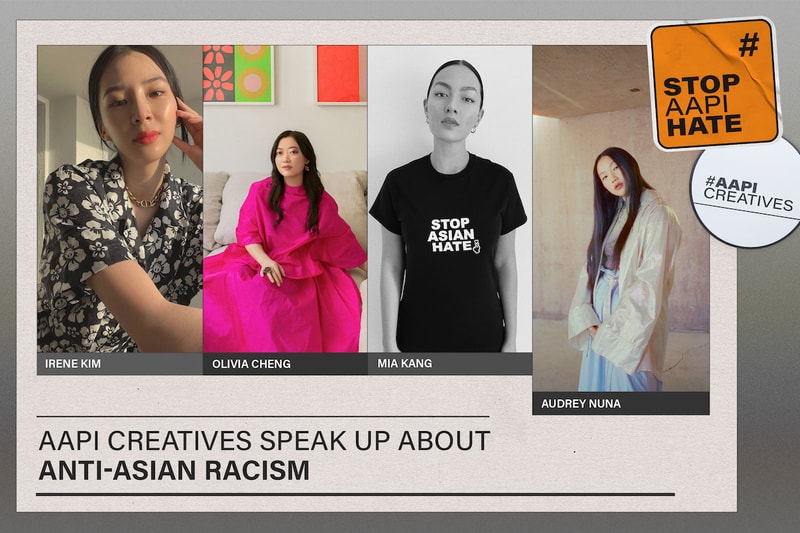
Asian hate crimes have seen a significant increase since the coronavirus pandemic broke out. Stop AAPI Hate received over 6,600 complaints on discrimination against Asian-Americans in the past year. Two Asian women in San Francisco were stabbed while they were waiting for a bus; in New York, two others were attacked with a hammer after being asked to remove their face masks; an 11-year-old and 17-year-old were arrested for assaulting an elderly Asian-American man, and the list goes on.
Unfortunately, racism against those of Asian American and Pacific Islander descent is nothing new. For decades, AAPIs have been marginalized and stereotyped in media as the “model minority” that are successful and extremely hardworking overachievers. This has led to the exclusion of Asian-Americans when it comes to discussions on equal opportunity.
Aiming to put a stop to discrimination and hate, more members of the AAPI community have come together to raise their voices on the changes that need to be made. Joining the fight against racism and bringing attention to ongoing issues in the creative industry, HYPEBAE spoke with designers, musicians, entrepreneurs and more on their experiences on anti-Asian hate. Continue reading for thoughts shared by Mia Kang, Irene Kim, Rachael Wang, Olivia Cheng, Sarah Law, Christine Sun Kim, AUDREY NUNA and Gia Kuan.
Make sure to educate yourself and consider donating to relevant organizations. You can also look to our list of 100+ AAPI-owned fashion, beauty and home brands to support.
Asian-Americans have been on the receiving end of so many hateful and horrendous crimes recently and it breaks my heart. Seeing images and videos of Asians, especially our elders, being shoved and physically attacked, is terrifying and makes me so upset. We are “liked” for our cuisine, products and culture, but when it comes to our safety and rights as citizens, it’s a different conversation. Sushi and Korean BBQ are cool but speaking a different language while standing in line at the grocery store is “not American.” K-pop is really catchy and K-beauty products are amazing but seeing an Asian person wearing a face mask is uncomfortable. All of these experiences and more are what Asian-Americans have to live through on a daily basis.
To those who have friends or family members that are Asian-American, I encourage you to listen, learn and take action to protect the community. The strength of America is its diversity and that’s what makes the country so beautiful and unique. It's important to do your research, join a group, check in on your friends, start a conversation with your circle to see how you can be an ally to the Asian American community and help spread the message.
Irene Kim, Model and Founder of IRENEISGOOD LABEL
Before I started my own company, I was fortunate to work under mostly people of color including people of Asian descent, all of whom were very racially aware and diversity-minded. That being said, in fashion, it is still overwhelmingly common to step into a room full of only white voices. It can feel pretty disappointing to be the only person of color in a room, doing the least desirable job, receiving the least pay, and wondering what exactly it is that everyone else is doing that ranks their opinion one rung above yours.
In March, there was an AAPI protest against hate in New York’s Chinatown. I think that was a very visual, impactful, beautiful display of the AAPI’s strength as a community and assertion of our space. I definitely think that the creative industries could do better in terms of allocating leadership positions for Asian-American voices. Powerful organizations such as the CFDA are largely white-led, and it would be great to see some more initiative taken towards giving AAPIs a voice.
I love the industrious spirit of the AAPI community — I think a lot of Asian people find it disheartening that AAPIs are often regarded as quiet and submissive, along with feeling like different AAPI groups lack unity. While these generalizations certainly hold weight, I do believe that AAPI groups, especially younger generations, are very enthusiastic about emphasizing togetherness and resilience. Another thing I love about the AAPI community is the focus on the strength of the group over the individual — I think we live in a highly over-individualized society, and regardless of skin color that is a dangerous way to maintain coexistence.
Olivia Cheng, Designer and Founder of Dauphinette
Throughout my whole career, I have been told what an Asian woman should look like and that I should look like that. I’ve been told to straighten my hair (even though a lot of Korean women, including my mother, have wavy or curly hair), I’ve been told to dye my hair darker, stay out of the sun to be as fair as possible, and of course, to get my measurements down to as small as I can. All because of the way that the media presents Asian women and having to adhere to those standards. For a long time, I felt I had been made to put my own personal identity to the side because I was put into a box that someone else had already created. This deeply affected my identity. It made me feel inadequate and like I am not Asian enough to call myself an Asian woman. I struggled with this internal battle for a long time. I’ve not gotten jobs because I don’t look “Asian enough”. I’ve been asked all the questions that Asians are sick of hearing at work: “Where are you really from?”
We are all figuring a lot out right now. We are having these tough conversations, we are articulating certain feelings we have never spoken about before. I think this is a real opportunity to learn and to create change for a better future. This goes beyond making a donation and carrying on with your life as usual. There needs to be change both on a personal level and a systemic level. We need to educate people on Asian and Asian-American history, and we need to dismantle this "model minority" myth.
I think that the fashion, beauty and creative industries can do a lot better. Asians need to be better represented in the media and the imagery that we put out there. We need to be represented more, and more accurately. Asians aren’t all tiny, submissive, pale and aren’t all East Asian. We shouldn’t be represented as exotic objects. We are a beautiful and diverse continent with rich and vast cultures. I think changes need to be made on a corporate level too – education is key.
The sense of "community" that is ingrained in Asian culture really shines through and is beautiful to experience. How the community has stepped up for one another, spoken out, helped so many victims of hate crimes with awareness and donations, organized rallies – it’s incredible. I went to a Stop Asian Hate march in NYC and it was amazing to see everyone from children, all the way to seniors, walking side by side and finally speaking out. I love the community, I love the willingness of people to learn and unlearn and educate ourselves and to push through cultural barriers to speak up. Through all this sadness and these unfortunate and heavy events, I have met some incredible new AAPI friends that I now consider my brothers and sisters.
Mia Kang, Model and TV Host
My initial thought when I started seeing more hate crimes was how foreign it felt for me to talk about it when people asked. Being Asian-American just hasn't been a public conversation until recent years, in my perspective at least. It's mind-boggling to me that I'm starting only now to put language to these things. I want to do better and learn more.
Meaningful action to me is coming together to spread awareness, of course, but also supporting organizations like AALDEF, Send Chinatown Love and AAJC. In your personal life, just being good to all people. Having tough conversations with friends when necessary. I see the fashion, music and creative industries taking strides to be more inclusive and equal, which is really nice to see – that growth. Representation is huge. I want to see more faces of people who are different – not just on billboards, in movies, on the runway and on TV shows, but in the writing rooms, behind the camera and in the booth.
AUDREY NUNA, Musician

Hate crimes are devastating and they each serve as a reminder of how dangerous and violent white supremacy is. Internalized white supremacy brainwashes folks to see those with different skin tones, different faiths, different bodies, different eye shapes and different gender identities as less than human. I think dehumanization is what allows some folks to commit hate crimes. Alternatively, when some people feel powerless, the way they can feel in control is to hurt those that are more vulnerable than they are. This benefits white supremacy. By pitting minority groups against each other, we stay distracted by fighting each other rather than uniting against the oppressor.
I think the first step is acknowledging white supremacy and organizing a resistance against violence and oppression which the AAPI community is harnessing right now. I'd like to see the fashion industry connect hate crimes against AAPI to the systemic devaluation of the lives of garment workers, many of whom are Asian and 80 percent of whom are women. This is all part of the same system that exploits some for the benefit of others. It's not just about Asian liberation either, it needs to be about Black and Indigenous liberation as well because as Audre Lorde so famously said, "I am not free while any woman is unfree, even when her shackles are very different from my own."
Rachael Wang, Stylist
A little over 10 years ago when I was starting in the industry, fashion was an extremely Caucasian space - design, marketing, PR and office environments all catered to a very specific and singular white point of view. I don't have any extreme personal stories of racism, but my experience was more of a constant feeling of being othered – it was very normalized in the workplace to have these reminders that you weren't part of the main culture that was being promoted. That specific feeling both within fashion and my personal life was the biggest motivation for starting my own brand. The purpose of KARA is to highlight and acknowledge how identity for many is more complex and multifaceted than society's stereotypes.
The recent surge in hate crimes has been extremely disturbing, particularly because so many elderly people have been targeted. On one hand, as a member of this community, it's very hard to comprehend where the hate comes from. On the other hand, I am not surprised. In the States, the political climate has been very tense over the past few years and in many ways, these sentiments have really been encouraged.
Last year at the start of the lockdown in New York City, twice a week I would walk to my office to check in on the space. One day in April, a group of three to four men started following me along Canal Street and yelling, "Go home China Virus." Two guys, in particular, followed right next to me on either side for a few blocks. The streets were completely empty, I remember looking around for help. It was a terrifying experience. It was a huge turning point for me. Based on how comfortable they were expressing that kind of hate, I realized these sentiments were deeper and more prevalent than I imagined.
It's really important to acknowledge how much these industries as a whole are still very much led by colonial values – the belief that Caucasian aesthetics, body types, thinking are inherently better than others. As a society, we need to ask more questions and do more to break down persistent stereotypes.
There are so many examples but one that we often face with KARA is related to the fact that our products are "Made In China." Within our industry, there is an unquestioned belief that goods made in Europe are inherently better than those made in Asia. From my experience, the quality of the product has little to do with the ethnicity or geographic location of its maker. We work with a tight-knit selection of manufacturers in China with incredible experience, some that have been in business for more than 30 to 40 years.
The AAPI community is an extremely welcoming and thoughtful one. I grew up in Hong Kong and although my mom is Caucasian American, I very much felt like a foreigner when I first moved to the States to attend Parsons. I really appreciated how people of really different ethnicities and backgrounds with the AAPI community considered me as one of their own.
Sarah Law, Founder and Creative Director of KARA
Since I'm in Berlin, it was difficult for me to follow the news in California, where my family is. I thought about how my grandma could easily be pushed to the ground and how my parents and sister could easily become victims of a hate crime. But of course, I had also experienced anti-Asian sentiment in Berlin during COVID-19 times.
Honestly, fundraising helps most of the time, but I'd like to see more meaningful posts by non-Asian people. When a group gets oppressed, the other groups should reach out... but not feeling responsible, empathetic or connected often gets in the way, unfortunately.
I became friends with Jeff Staple on Instagram and we did this awesome shirt campaign with two other Asian Deaf creatives, Ravi Vasavan and Meeya Tjiang. That's what I love about the AAPI community.
Christine Sun Kim, Sound Artist
I think microaggressions through stereotypes and racism within the industry have always existed. Throughout my internships, I felt like I was assigned to do organizational, behind-the-scenes tasks rather than front-facing client ones, soon realizing it wasn't so much attributed to my skill set as much as it was about my background. The intern room was very much divided by race, with the expectancy of quiet, Asian women to work tirelessly in the background while our white counterparts led the charge. Eventually, when I started my own consultancy and was going through the process of naming it, I was faced with questions not only by my peers, lawyers, accounts and even closer family of what the implications would be if I used my full name. Some believed it would limit the potential to acquire certain clients because it wasn't, well, a Western name and had a connotation of anything but a communications firm. Gladly, I went with my gut decision and didn't feel in any way insecure about it, and I'm very happy that I did.
It's heartbreaking and incredibly angering that many hate crimes are happening to working-class elderly people, who have worked so hard as immigrants to the USA only to be brutally attacked on the streets. I feel for my landlord – a Chinese woman who now fears coming to work in the city in fear of any attacks – and for my Taiwanese parents in Australia who now are reluctant to come to New York. A lot of this release of hatred is also with the assumption that we, as the AAPI community would stay silent and quiet, as many of us were conditioned to do so growing up. The silence needs to be broken – not only through action but work through education and policy.
There are many organizations planning meaningful work year-round. Expressions of solidarity are already happening organically at events, in online conversations, in the press and in the culture. I would like to highlight a very meaningful series called Quiet Before: Unearthing Anti-Asian Violence, which is a six-part series of virtual programming dedicated to examining anti-Asian violence from its many complex angles. The idea for the name, Quiet Before, is a nod to the saying, “a quiet before the storm,” but can also be understood as a command before speaking.
For Freedoms, an artist-led nonprofit platform for civic engagement, discourse and direct action for artists in the U.S., is also continuing its nationwide campaign to visualize mutual support by inviting artists across the spectrum of the AAPI moniker to convey their challenges, brilliance, history, nuance and perseverance. What they are doing is very meaningful because we are using art as a first response tool. Presented on billboards across the country, this solidarity campaign is a public representation of arms linked for common good.
What I love about the AAPI community is its diversity in all of its nuances and lived experiences. It's very important to understand that the AAPI experience cannot be pegged to one narrative; there is no unifying thread, class differences prevail. It's ever-evolving and there's so much rich and vast history of traditions to unfold and learn. There's also an empathetic unity which is the foundation to our solidarity.
